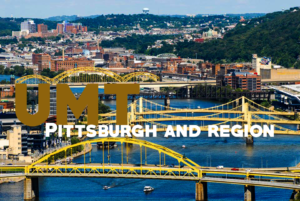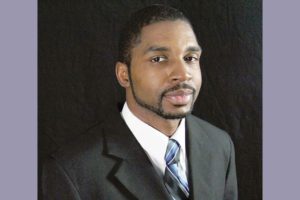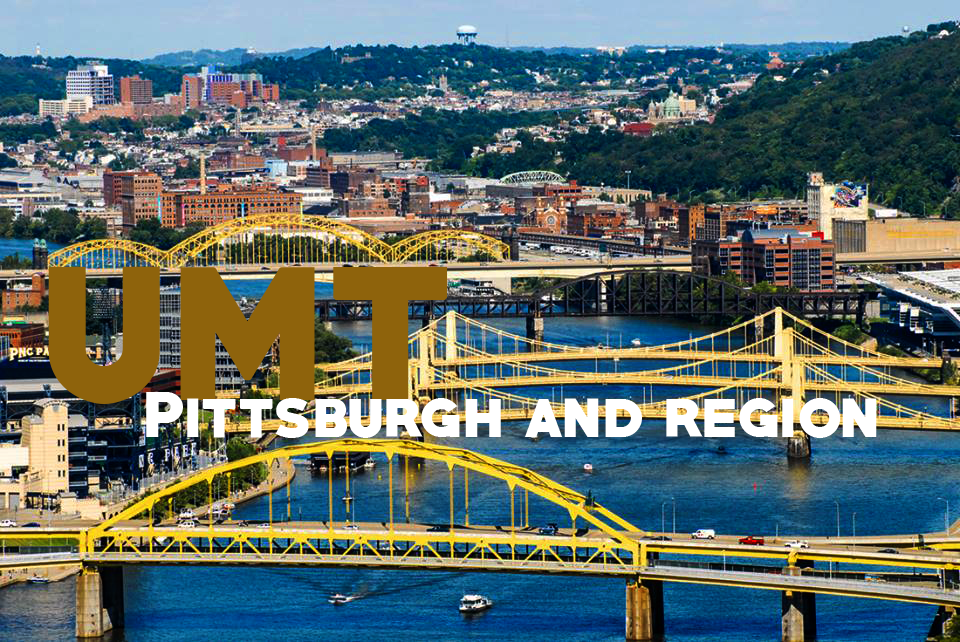
The Borough of Wilkinsburg is a small municipality on the eastern Border of the City of Pittsburgh, which has been economically troubled for a number of years, losing almost half its population since 1940.
Rarely heard from except in cases of crime or decay, a number of residents are fighting to restore the borough to its former state as a community of families, thriving businesses and clean, safe streets. Three of those concerned residents have thrown their hats into the ring to replace Mayor John Thompson.
Andre Scott, former legislative aid to Pennsylvania State Representative Ed Gainey, has lived in the borough for 22 years. A 2000 graduate of Wilkinsburg High School, Scott earned an Associate Degree in Psychology from Community College of Allegheny County, a Bachelor’s Degree in Psychology and Sociology from Duquesne University. He recently returned to his studies, earning a Master’s Degree from the University of Phoenix. A pastoral assistant at Mulberry Community Church, Scott looks forward to establishing a counseling practice of his own.
Scott purchased a home 10 years ago, where he resides with his two sons and one daughter, in order to be close to his mother, and his extended family, who also live in Wilkinsburg. In addition to direct advocacy for the borough during his tenure on Gainey’s staff, including coordinating the transition of Wilkinsburg High School Students into Pittsburgh Public Schools’ Westinghouse High School, Scott serves on the board of the Sanctuary Project, is Secretary of the Wilkinsburg Community Development Corporation, and a member of its Governance Committee.
Marita Garrett, a partner and lead outreach consultant with ADMINTRINSIC, a consulting firm she co-founded located in Wilkinsburg to help businesses and communities work, and work together, more efficiently. A native of Akron, Ohio, Garrett earned a Bachelor’s Degree in Psychology from the University of Pittsburgh, and a Master’s from Chatham University. She is currently a member of the Wilkinsburg Borough Council, and serves as its Vice-President, and is a Democratic Committeeperson serving Ward 1, District 5.
Garrett is a member of a number of community organizations, including serving on the Allegheny Regional Asset District Board, as Vice-Chair of the Congress of Neighboring Communities (CONNECT) and as part of the Young Elected Officials Network. As part of her tenure on Council, Garrett serves on the Public Safety Committee and has worked with the Vacant Homes Tour. She also hosts “Community Conversations” to bring residents together to address issues facing the Borough.
Michael Johnson is a fourth-generation Wilkinsburg resident, and graduate of Wilkinsburg schools. He is the founder and Chief Executive Officer of Opening Doors for Kids, Inc., and a co-founder of Community Choice Pittsburgh, Inc. Johnson is also in his second year as a member of the Wilkinsburg School Board, where he serves as Treasurer and has served on the Community Relations and Building and Grounds Committees. He has received the endorsement of the Democratic Committee for the position.
The single father of two sons is active in the community, working in community gardens, hosting a Christmas Dinner and Toy Giveaway for neighbors, creating the Wilkinsburg Youth Commission and hosting job fairs for teens and for the community.
Through their work in and with the community, all three candidates see a pressing need to unite their constituents in order to, as Garrett says, make Wilkinsburg “not the ‘next best thing,’ or ‘up and coming,’ but a better and improved version of itself.”
Although the position of Mayor in this Borough is a part-time post, paying what would otherwise be considered a “stipend,” all of the candidates concur that the biggest problem is that the community is considered by some to be unsafe due to blight, gaps in retail throughout the business district, and, while decreasing steadily, high rates of crime.
The problems are so intertwined, the Mayor’s main responsibility of overseeing the police department becomes a responsibility for all three, and unifying the community is a common solution for all three.
“I’m from Wilkinsburg, my family is from here, and I remember as a kid, there was no ‘this organization’ or ‘that organization,’” Johnson says. “Everyone worked together, and it was a beautiful place to live. Everyone looked out for the next one.”
“The ‘bodies’ here don’t work together, the school board, borough, development company, don’t work together,” Scott says. “That’s something I would like to help foster.”
“The main deterrent to people moving back is taxes and image,” Scott says. “They have to have someone they can trust in office. The tax base is a collective effort because the borough has a very high percentage of single-family and individual homes. We have to have everyone engaged in the community.”
“Wilkinsburg is not so large that we can engage in ‘a tale of two cities,’” Scott says regarding those in more affluent neighborhoods of the borough who feel they are holding up the weight of taxes in the city. “If they would engage in the other areas, the business district, the parks, other things of that nature, it could uplift the whole borough.”
Garrett’s vision is “a healthy and thriving Wilkinsburg, in every sense, for all neighbors to enjoy, with equitable access to quality food markets, successful small businesses, youths playing in the parks. A neighborhood where we all know [each other] and interact peacefully, not based on Wards, or what part of the Borough we live in.”

“We have to make those people [in more affluent parts of town] happy again,” Johnson says. They have disassociated themselves from the rest of Wilkinsburg — that’s the feeling you get when you go there. We have to start to build relationships, friendships, that will invite those people back to us.”
“I’m going to do so much that they are going to be proud, they will say, ‘We live in Wilkinsburg,’” Johnson says. “I intend to show some serious change so people will feel proud to live here.”
“Wilkinsburg could be a beautiful place,” Johnson says. “Walking around the community, seeing the beautiful homes we have… we could spread that through the whole community.”
Access to resources is a hurdle to be overcome. Garrett has worked as a council member and business owner to obtain grants and other funding to address blight and create community meeting sites.
Scott feels his experience working with Gainey gives him the advantage in this aspect, however.
“I want to put all my resources and experience into the borough I live in,” Scott says. “There are resources available, but everybody doesn’t know how to touch them, how to have access to them. I’d like to make that a more open process, a more collaborative dynamic.”
Working with Gainey, Scott says, enabled him to establish relationships with people using his own skill set, so he “could be able to reach out without too much kickback.”
“By the nature of having state-level experience in government, I can bring that to Wilkinsburg,” Scott says. “I have relationships with the County Executive [Rich Fitzgerald] and with DeWitt Walton [the area’s representative on Allegheny County Council], and having those relationships will hopefully help to attract resources to the borough.”
Johnson sees his important connections as those within the community.
“I think Wilkinsburg is really coming alive right now,” he says. “I’m not the type to badmouth Council or the current Mayor, I just think it’s time for some new blood. These are great individuals.”
Speaking of his opponents, he says he would like to form a team and work together, to stay involved.
“Money, signs, those things don’t vote. I reach out to voters, I’ve knocked on over 5000 doors and am meeting these people,” Johnson says, adding that it motivates him to want to do more. “I write down the things people tell me, and they are all becoming a part of my blueprint. And I get a lot: We need some work. Hearing from these residents, we need change, and I want to make sure we get the safety. I want to make sure my kids are safe when they go to the park, and one of the things I will enjoy doing is working with the community and the police force.”
“I want to work with this police force,” Johnson says. “I want to make sure they have everything they need. I want them to have the training, I want them to have the best equipment, I want to make sure our force is a strong force, and I want them out here in the community.”
Johnson says he “wants fewer police officers in the building, and more out on the streets. When I pick my kids up at the library, I see all the police cars all lined up, and I think that’s ridiculous. The main concern of seniors is that they are afraid to go outside, they never see a police presence. When they call, it takes forever for them to come…”
Garrett, currently a member of the Borough’s Public Safety Committee, says she works with Police Chief Ophelia Colman and officers to “increase public safety and awareness opportunities for residents to combat crime and violence.”
Scott agrees that community involvement with the police force is important to increasing perception of the community as safe and well-protected.
“I have a history over the last few years in police-community relations. I’ve been doing ‘meet the beat cop’ series in each zone, where the officers get to meet the business owners and residents,” Scott says. “We can develop more of a humane approach to each other, because it’s very difficult to police or to be policed, by people you don’t know. That would be my first task.”
Scott says he knows Chief Coleman does a number of outreach activities on her own, but would “make sure the community knows she is a positive person, and they can support her” as he would.

Johnson envisions the police force as a kind of ambassador for good, based on a program he discovered in his research, which rewards good behavior rather than serving as a punishing force.
“Police officers could ride around the community with these little discount cards, or trading cards, and give them to a child if they see them doing something positive,” Johnson says. “Then, each month, say, whoever has the most cards or whatever gets something special. Build a positive relationship with the police, how it was years ago when they used to give out baseball cards.”
Johnson also envisions keeping youth out of trouble by keeping them busy with community service activity, like regular cleanups or working on the community’s existing “Stone Soup Garden,” and feels volunteers would be more likely to join in if they were invited by the Mayor himself.
“More people will want to get involved if it’s not just ‘that guy up the street,’” Johnson says, laughing. “I’ll be able to get more people to help me fix this place back to what we want it to be again.”
“I am going to reunite this community,” Johnson says. “They don’t have to like me, but they are going to be proud of Wilkinsburg. I want people to ride down Penn Avenue and say, ‘I remember when this wasn’t here.’”
“Having new buildings us a nice concept, but we need to have healthy people as well,” Scott says. “We can’t just have a new store, and the people around it aren’t able to utilize it and their homes are falling down around them.”
“I would like to be accessible to the community,” Scott says. Citing the number of meetings, he says, “People just have different schedules. If we as a community can commit to a process where one says ‘Okay, I’ll go to this meeting, and report back out to the collective, we will have more information-sharing and more knowledge so it’s not a separate, us-and-them thing. We have to come together as a community to make this a better place to attract more people.”
“My primary focus is the safety of the citizens, but we also have to provide services for the people who live here,” Johnson says. “Win or lose, I still get to do what I do to help people in this community. My kids live here, and they’re watching.”

By Nancy Hart



































